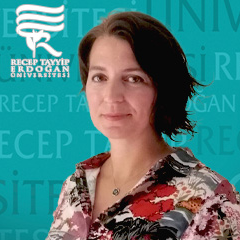After completing my Bachelor's degree in Mathematics, I desired to pursue applied science,
leading me to pursue a Master's degree in Informatics in the US at University of Pittsburgh. During
my studies, I focused on unstructured text data analysis for my thesis, where I explored various
data mining techniques. Upon returning home, I began working as an Instructor in the Computer
Technologies Department. Currently, I teach Object-Oriented Programming (Java), Database
Systems (SQL), and Web Technologies (HTML, CSS, JS).
Merely teaching didn't fulfill my aspirations; I yearned to delve deeper into learning and research.
Recognizing the potential of my mathematical and programming background to contribute
meaningfully to humanity, I determined that the medical field was the ideal avenue. Thus, I
embarked on a PhD journey in Medical Informatics at Middle East Technical University, which has
the highest ranking in Turkey. Throughout my doctoral studies, my focus gravitated towards
becoming a data scientist. To equip myself with the requisite skills, I undertook courses in data
mining and machine learning offered by the computer engineering department.
For my PhD project, I delved into microbiome bioinformatics. To refine my research focus, I secured
a government scholarship to visit the Science for Life Laboratory at Karolinska Institute in
Stockholm, Sweden, where I spent six months. During this time, I gained hands-on experience with
R. At the onset of my PhD, I contributed
to a forensic research endeavor aimed at addressing hospital infection issues. My role involved
analyzing a contagion dataset collected from an intensive care unit to uncover transmission
pathways among objects, leveraging microbiome profiles. While grappling with the contagion dataset, I realized the
need to treat microbiome data as "compositional data". In response, I pursued a course on
Compositional Data Analysis (CODA) offered by the Compositional Data Research Group in Spain.
Subsequently, we devised a novel procedure to analyze microbiome data employing
compositional data techniques grounded in rigorous mathematical principles.
My future plan involves leveraging compositional data techniques for analyzing microbiome and medical datasets.
- E-posta
- asli.yazagan@erdogan.edu.tr
- Web Sayfası
- https://avesis.erdogan.edu.tr/asli.yazagan
- İş Telefonu
- +90 464 715 1617
- Fax Telefonu
- +90 464 715 1617







